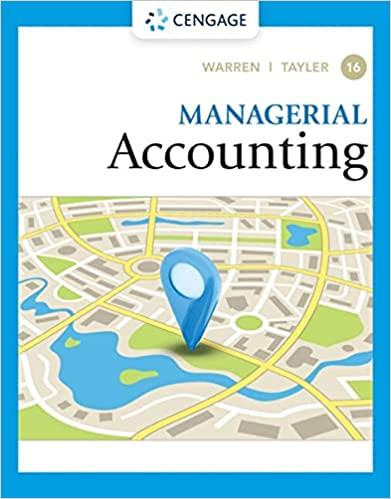Answered step by step
Verified Expert Solution
Question
1 Approved Answer
Tax Research Project Case B Albert, Hunter, Hudson, and Beatrice, four unrelated friends come to you with a tax problem. The Albert, Hunter, and Hudson
Tax Research Project Case B
Albert, Hunter, Hudson, and Beatrice, four unrelated friends come to you with a tax problem. The
Albert, Hunter, and Hudson acquired shares each of Xylocarp corporate stock and Beatrice acquired
shares. All four paid $ in cash per share, so the Albert, Hunter, and Hudson paid $ and
Beatrice paid $ Alberts father, Alex, owns shares; Hunters mother, Jill, owns shares;
Hudsons daughter, York, owns shares; and Beatrices son, Jerome, owns shares.
Years ago, Hunter, a peculiar romantic, thought of the sweetest Valentines gift he could give his wife
Wileen, half of his Xylocarp shares! She was so ecstatic!!! Not to be shown up Hudson the next year
gave his wife, Wioleta, half of his Xylocarp shares for Valentines Day! Her reaction wasnt quite so
enthusiastic.
Albert, Hunter, Hudson, and Beatrice are considering redeeming and of their shares for
$ $ $ and $ respectively. If they do this, their old vs new ownership
will look like the following:
Basis of Shares
Before
Redemption
# of Shares
Before
Redemption
# of Shares
After
Redemption
Albert $
Alex, Alberts Father na
Hunter $
Wileen, Hunters Wife $
Jill, Hunters Mother na
Hudson $
Wioleta, Hudsons Wife $
York, Hudsons Daughter na
Beatrice $
Jerome, Beatrices Son na
Total Shares
The four friends are coming to you for advice and explain to you that they think their redemption will be
a nonqualified redemption subject to d They go on and on about how amazing an experience
their tax class was, but then explain that, for some unknown reason, all of the inclass d
redemption examples had very low E&P This meant that in all of the examples, the entire basis of the
redeemed shares was treated as a return of capital.
They know Xylocarp has been very profitable, has plenty of E&P so the entire distribution will be
considered a dividend, and therefore there will be no reduction in basis of their redeemed shares. What
they dont know, however, is what to do about the unused basis of their redeemed shares??? Does it
create a loss, create an adjustment, get transferred somehow, or simply disappear?
Assume neither Hunter nor Beatrice will agree to not to acquire shares within the next years.
Take a position on this Question:
Assuming all of Alberts $ constitutes a dividend, what will happen to the $ basis
of Alberts redeemed shares:
a Disappears temporarily, the basis will come back if he ever repurchases the shares.
b Disappears permanently, unused basis in a redemption is just lost and nondeductible.
c Creates a recognized loss, unused basis in a redemption is fully deductible.
d Creates an adjustment and is transferred to his remaining unredeemed shares.
e Creates an adjustment and is transferred to his fathers shares.
f Something not listed above explain the correct treatment in the logic section
Assuming all of Hunters $ constitutes a dividend, what will happen to the $ basis
of Hunters redeemed shares:
a Disappears temporarily, the basis will come back if he ever repurchases the shares.
b Disappears permanently, unused basis in a redemption is just lost and nondeductible.
c Creates a recognized loss, unused basis in a redemption is fully deductible.
d Creates an adjustment and is transferred to his wifes shares.
e Creates an adjustment and is transferred to his mothers shares.
f Something not listed above explain the correct treatment in the logic section
Assuming all of Hudsons $ constitutes a dividend, what will happen to the $
basis of Hudsons redeemed shares:
a Disappears temporarily, the basis will come back if he ever repurchases the shares.
b Disappears permanently, unused basis in a redemption is just lost and nondeductible.
c Creates a recognized loss, unused basis in a redemption is fully deductible.
d Creates an adjustment and is transferred to his wifes shares.
e Creates an adjustment and is transferred to his daughters shares.
f Something not listed above explain the correct treatment in the logic section
Assuming all of Beatrices $ constitutes a dividend, what will happen to the $
basis of Beatrices redeemed shares:
a Disappears temporarily, the basis will come back if he ever repurchases the shares.
b Disappears permanently, unused basis in a redemption is just lost and nondeductible.
c Creates a recognized loss, unused basis in a redemption is fully deductible.
d Creates an adjustment and is transferred to any other stock she directly owns.
e Creates an adjustment and is transferred to her sons shares.
f Something not listed
Step by Step Solution
There are 3 Steps involved in it
Step: 1

Get Instant Access to Expert-Tailored Solutions
See step-by-step solutions with expert insights and AI powered tools for academic success
Step: 2

Step: 3

Ace Your Homework with AI
Get the answers you need in no time with our AI-driven, step-by-step assistance
Get Started


